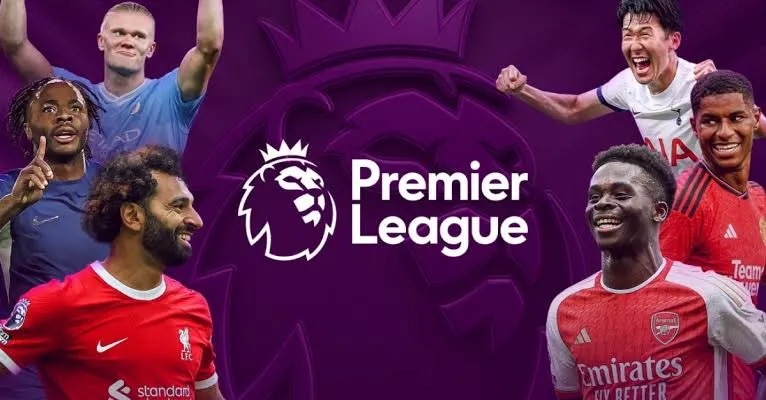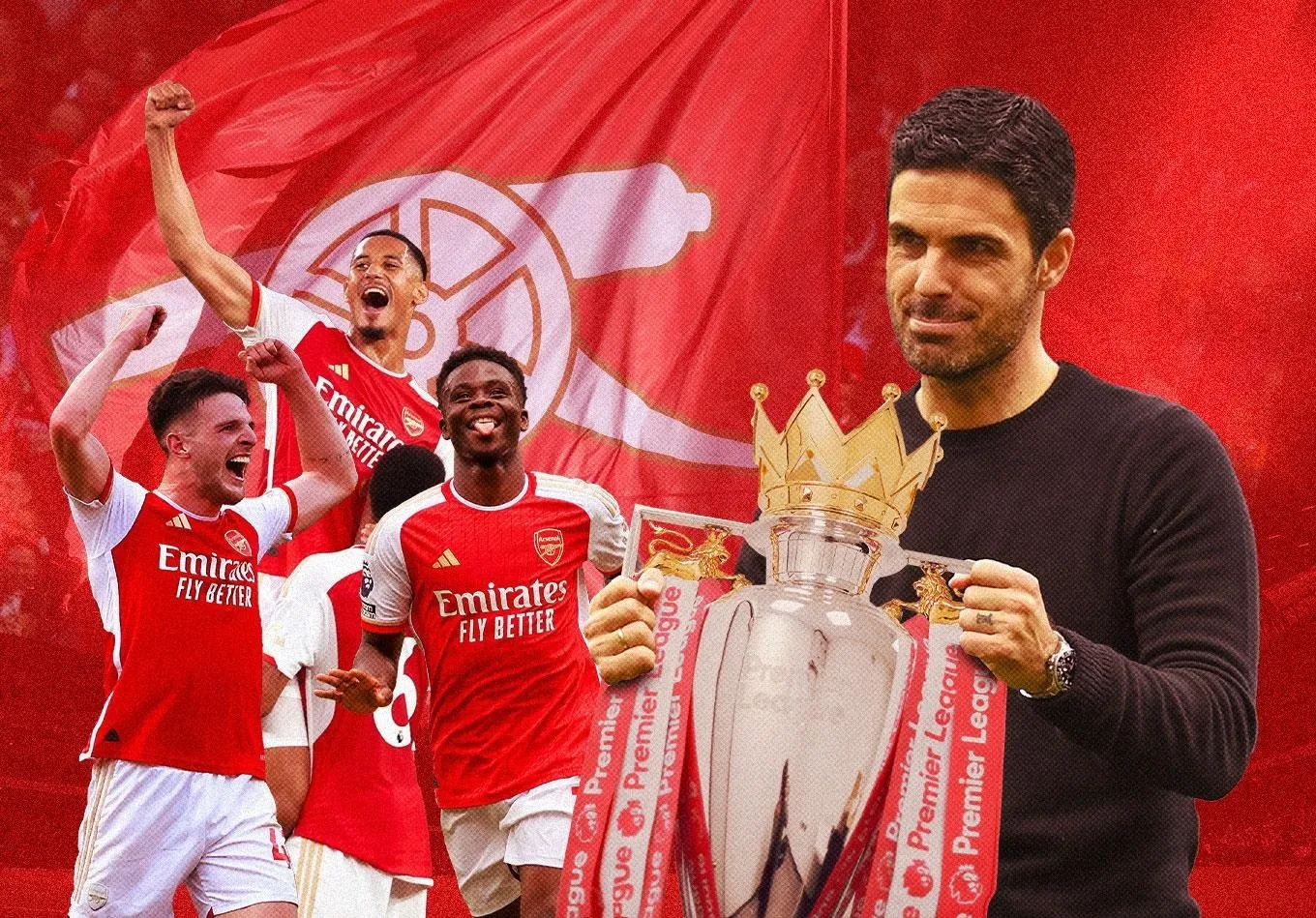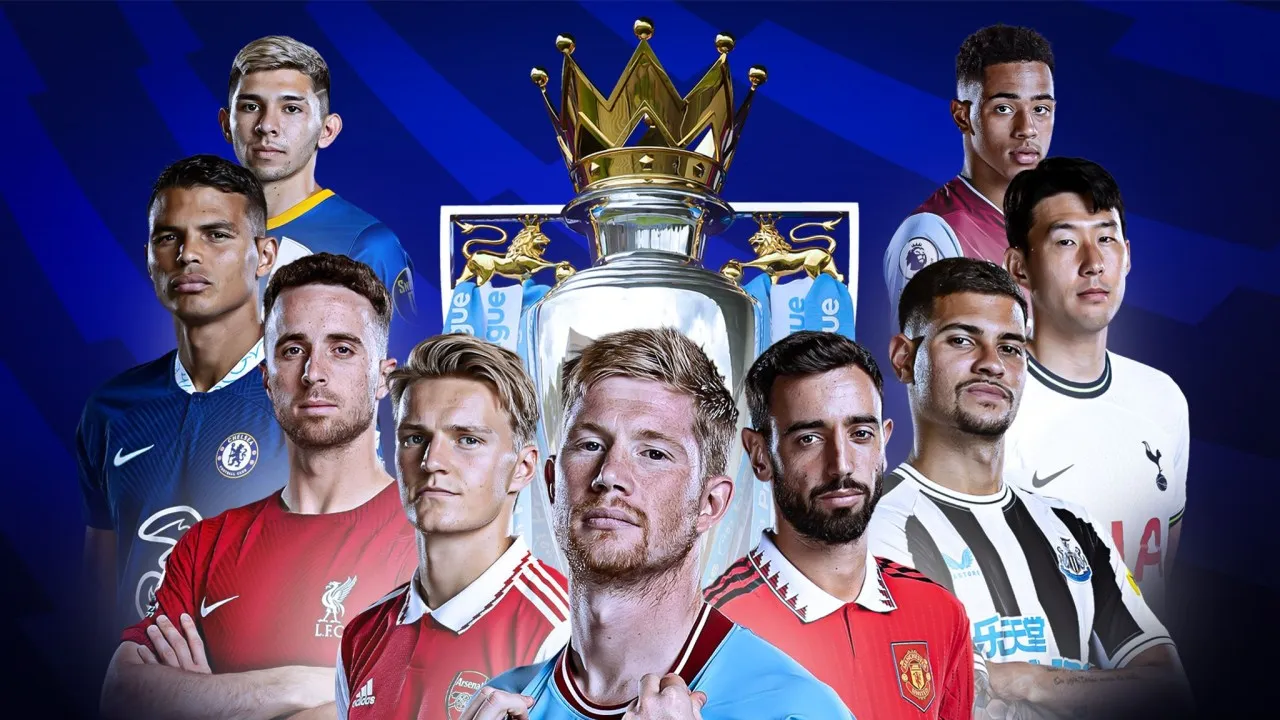In the ever-evolving world of football, the Premier League has stood tall as an unparalleled force, captivating fans across the globe with its sheer intensity, unrelenting drama, and an unwavering dedication to the beautiful game. From its humble beginnings in 1992 to its current status as a global phenomenon, the Premier League has undergone a remarkable transformation, leaving an indelible mark on the hearts and minds of football enthusiasts.
The Formative Years: The Birth of a Legacy (1992-1999)

The Inaugural Season: Laying the Foundation
The year 1992 marked a pivotal moment in the history of English football as the Premier League was born, replacing the old First Division. This momentous shift ushered in a new era of excitement, with teams vying for the coveted title in a league that promised to be more competitive and financially rewarding than ever before.
The Rise of Manchester United
The inaugural season of the Premier League was dominated by Manchester United, who emerged victorious and set the tone for the years to come. Sir Alex Ferguson’s squad, led by iconic players such as Eric Cantona and Ryan Giggs, showcased a level of skill and determination that would become the hallmark of their dynasty.
# The Foray into European Dominance
Manchester United’s success in the Premier League soon translated to the European stage, as they clinched the UEFA Champions League title in 1999, completing an unprecedented treble and cementing their status as one of the greatest teams in the history of the game.
The Emergence of New Challengers
As the Premier League gained traction, other clubs began to rise to the occasion, challenging the dominance of Manchester United. Arsenal, under the guidance of Arsene Wenger, emerged as a formidable force, while Chelsea and Newcastle United also made their mark, providing fans with a thrilling spectacle of competitive football.
# The Rivalry Between Manchester United and Arsenal
The intense rivalry between Manchester United and Arsenal defined the late 1990s, with the two clubs engaging in a fierce battle for supremacy. The “Battle of Old Trafford” in 1999 and the “Pizzagate” incident in 2004 became iconic moments that epitomized the passion and intensity of this legendary rivalry.

The Influx of Billionaire Owners
The early 2000s saw a significant shift in the landscape of the Premier League as wealthy foreign investors began to pour money into English clubs. The arrival of Roman Abramovich at Chelsea and the subsequent takeovers of Manchester City and other teams ushered in a new era of financial might, transforming the way the game was played and perceived.
The Rise of Manchester City and Chelsea
The influx of billionaire owners brought about a new era of dominance, with Manchester City and Chelsea emerging as the new powerhouses in the Premier League. These clubs, backed by vast resources, were able to attract world-class players and managers, challenging the traditional hierarchy and redefining the competitive landscape.
# The Rivalry Between Manchester United and Chelsea
The early 2000s witnessed the rise of a fierce rivalry between Manchester United and Chelsea, as the two clubs battled for supremacy both domestically and on the European stage. The rivalry was fueled by the personalities of managers such as Sir Alex Ferguson and Jose Mourinho, creating a captivating spectacle for fans.
The Emergence of the “Big Four”
During this golden age, the Premier League witnessed the rise of the “Big Four” – Manchester United, Arsenal, Chelsea, and Liverpool. These clubs established a virtual stranglehold on the top positions in the league, showcasing a level of consistency and quality that set them apart from the rest.
# The Battle for Champions League Qualification
The race for Champions League qualification became a fierce competition within the Premier League, with the “Big Four” clubs fighting tooth and nail to secure the coveted spots. This added an extra layer of drama and intensity to the league, as teams fought for the opportunity to compete at the highest level of European football.
The Age of Parity: Increased Competitiveness and Unpredictability (2010-2019)

The Emergence of New Title Contenders
The 2010s saw a shift in the balance of power within the Premier League, as new title contenders emerged to challenge the traditional heavyweights. Leicester City’s remarkable title-winning campaign in 2015-16 was a testament to the league’s growing unpredictability, inspiring hope and excitement among fans of smaller clubs.
The Rise of Tottenham Hotspur and Liverpool
Tottenham Hotspur and Liverpool emerged as formidable forces during this period, challenging the dominance of the “Big Four” and establishing themselves as genuine title contenders. The tactical acumen of managers like Mauricio Pochettino and Jurgen Klopp played a crucial role in their success, captivating fans with their brand of attacking football.
# The European Exploits of Liverpool and Tottenham
The Premier League’s increased competitiveness was not limited to the domestic scene, as Liverpool and Tottenham Hotspur showcased their prowess on the European stage. Liverpool’s remarkable Champions League triumph in 2019 and Tottenham’s run to the Champions League final in the same year demonstrated the league’s ability to produce world-class teams capable of competing at the highest level.
The Resurgence of Manchester City and the Guardiola Effect
The arrival of Pep Guardiola at Manchester City in 2016 ushered in a new era of dominance for the club. Guardiola’s tactical brilliance, coupled with the substantial financial backing of the club’s owners, transformed Manchester City into an unstoppable force, challenging the established order and redefining the way the game was played in the Premier League.
# The Rivalry Between Manchester City and Liverpool
The competitive landscape of the Premier League intensified further with the emergence of a fierce rivalry between Manchester City and Liverpool. The two clubs engaged in a captivating battle for the title, pushing each other to new heights and providing fans with an exhilarating display of football at its finest.
The Rise of Analytics and the Changing Landscape (2020-Present)

The Impact of Analytics on Player Recruitment and Tactics
The recent years have witnessed a significant shift in the way Premier League clubs approach the game, with the increasing prominence of data analytics and its influence on player recruitment, tactics, and overall strategy. Clubs have embraced advanced statistical analysis to identify and develop talented players, as well as to optimize their on-field performances.
The Role of Data-Driven Decision-Making
Premier League clubs have invested heavily in data analysts and sports scientists, leveraging the power of analytics to gain a competitive edge. From identifying undervalued players to fine-tuning tactical approaches, data-driven decision-making has become a crucial aspect of the modern game, shaping the trajectory of teams and individual players.
# Case Study: Liverpool’s Data-Driven Approach
Liverpool’s success in recent years can be partly attributed to their data-driven approach to the game. The club’s analytical team has played a pivotal role in scouting and recruiting players who fit the team’s tactical system, as well as in optimizing performance and minimizing the risk of injuries.
The Increasing Globalization of the Premier League
The Premier League’s global reach has expanded exponentially in recent years, with the league attracting a massive international audience and an influx of foreign players, managers, and investors. This globalization has reshaped the league’s identity, bringing diverse cultures and playing styles to the forefront.
The Influence of International Talent
The Premier League’s ability to attract some of the world’s best players has been a key factor in its global appeal. The influx of international talent has not only raised the overall quality of the league but has also contributed to the development of young English players, exposing them to different styles of play and expanding their horizons.
# The Emergence of New Hotbeds of Talent
The Premier League’s global reach has also led to the emergence of new hotbeds of talent, with players from regions like Africa, Asia, and South America making significant contributions to the league’s success. This diversification has added a new layer of excitement and unpredictability to the competition.
The Challenges of Sustainability and the COVID-19 Pandemic
As the Premier League continues to grow, it faces a new set of challenges that test its resilience and ability to adapt. The COVID-19 pandemic has had a significant impact on the league, forcing clubs to navigate uncharted waters and rethink their strategies for long-term sustainability.
The Financial Strain and the Need for Innovation
The financial implications of the pandemic have put many Premier League clubs under immense pressure, leading to a re-evaluation of spending habits and a greater emphasis on sustainable models of operation. Clubs have been forced to explore innovative ways to generate revenue, such as expanding their digital presence and exploring new commercial partnerships.
# The Evolving Relationship Between Fans and the Game
The COVID-19 pandemic has also reshaped the relationship between fans and the game, with the absence of live spectators significantly altering the match-day experience. Premier League clubs have had to find new ways to engage their supporters, leveraging digital platforms and exploring alternative means of fan involvement to maintain a strong connection with their communities.
The Future of the Premier League: Embracing Change and Securing Longevity

Technological Advancements and the Fan Experience
As the Premier League continues to evolve, the integration of cutting-edge technology will play a crucial role in enhancing the overall fan experience. From the implementation of VAR (Video Assistant Referee) to the potential introduction of new digital platforms and immersive viewing experiences, the league is poised to embrace technological innovations that will shape the way fans engage with the game.
The Importance of Sustainability and Environmental Responsibility
In an era of increased environmental awareness, the Premier League will need to address issues of sustainability and environmental responsibility. Clubs and the league as a whole will be expected to implement green initiatives, reduce their carbon footprint, and demonstrate a genuine commitment to environmental stewardship, ensuring that the sport’s impact on the planet is minimized.
# The Continued Globalization and the Premier League’s International Reach
The Premier League’s global appeal is expected to continue its upward trajectory, with the league further expanding its international presence and cultivating new fan bases across the world. This increased globalization will present both opportunities and challenges, as the league navigates the complexities of diverse cultural and regulatory environments.
The Pursuit of Competitive Balance and Equitable Distribution of Wealth
One of the key challenges facing the Premier League in the coming years will be the pursuit of competitive balance and the equitable distribution of wealth among its clubs. The league will need to strike a delicate balance between maintaining the appeal of its top clubs and ensuring that smaller clubs have a realistic chance of success, ultimately creating a more level playing field.
The Role of Governance and Regulatory Frameworks
The Premier League’s governance and regulatory frameworks will play a crucial role in shaping the league’s future. Robust policies and regulations will be necessary to address issues such as financial fair play, player welfare, and the overall integrity of the sport, ensuring that the Premier League remains a beacon of excellence and fair play.
# The Continued Evolution of Tactics and Playing Styles
As the Premier League adapts to the changing landscape, the evolution of tactics and playing styles will be an ongoing process. Managers and coaches will need to continuously innovate and adapt their approaches, embracing the latest analytical insights and trends to stay ahead of the curve and provide fans with a captivating spectacle of the beautiful game.
Conclusion
The Premier League’s journey has been nothing short of remarkable, a testament to the enduring allure of the beautiful game. From its humble beginnings to its current status as a global phenomenon, the league has captivated audiences worldwide, showcasing the very best of football through its unrelenting drama, intense rivalries, and constant pursuit of excellence.
As the Premier League moves forward, it faces a multitude of challenges and opportunities that will shape its future. From the impact of technological advancements and the need for sustainability to the pursuit of competitive balance and the continued globalization of the sport, the league’s ability to adapt and innovate will be crucial in maintaining its position as one of the most prestigious and compelling competitions in the world of football.
The Premier League’s legacy is one of resilience, innovation, and a steadfast commitment to the game that has inspired millions of fans across the globe. As it continues to evolve, the Premier League’s story will undoubtedly be one of continued growth, triumph, and the enduring power of the beautiful game to captivate the hearts and minds of all who witness its unfolding.




